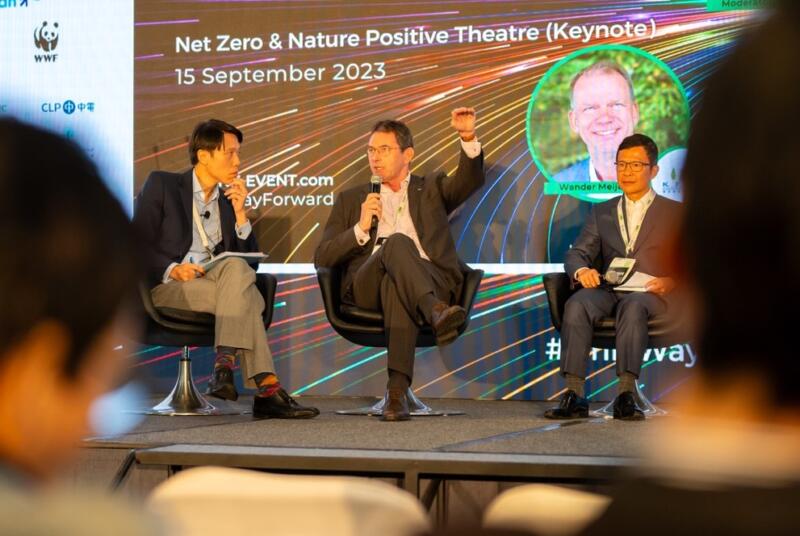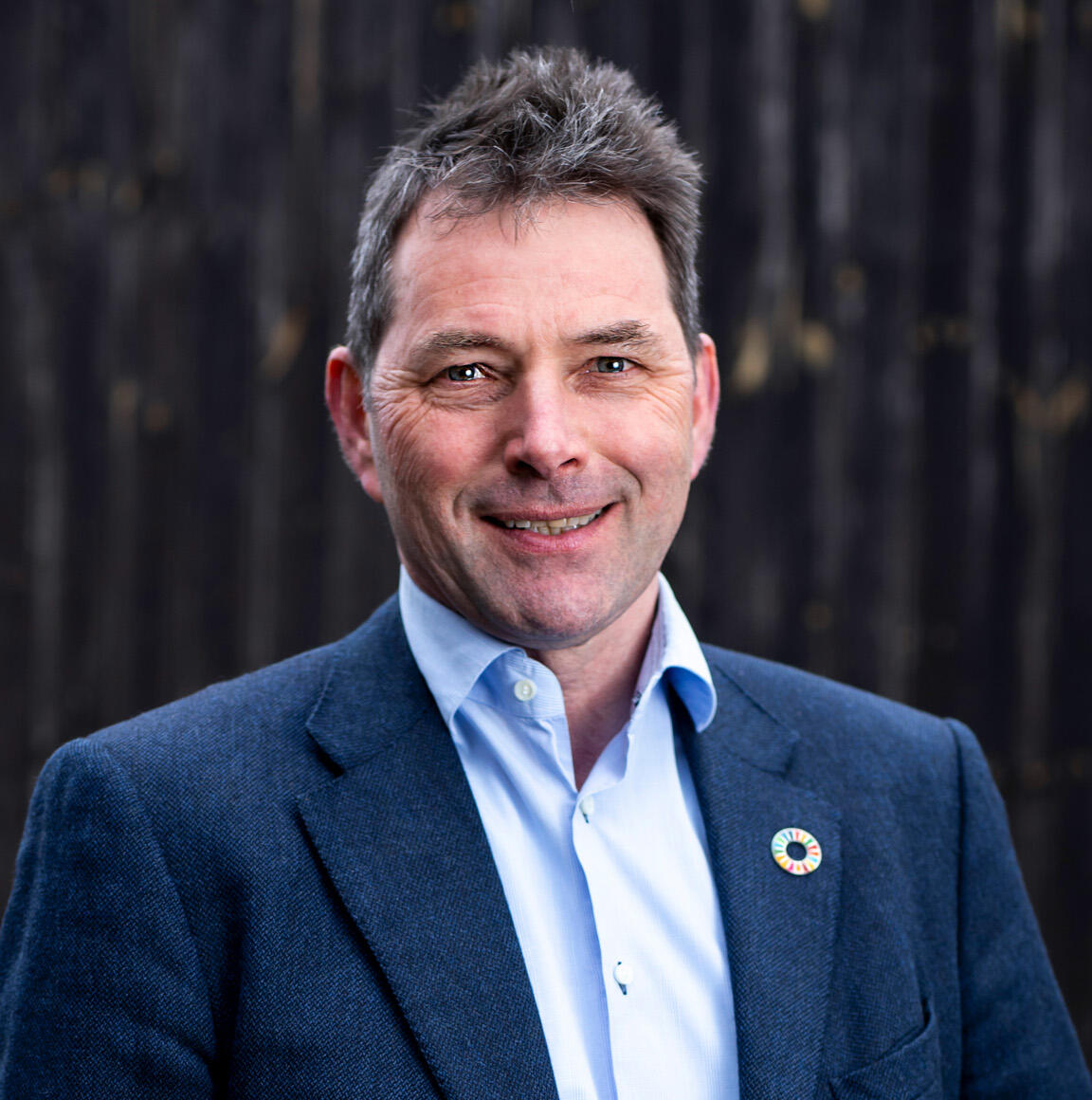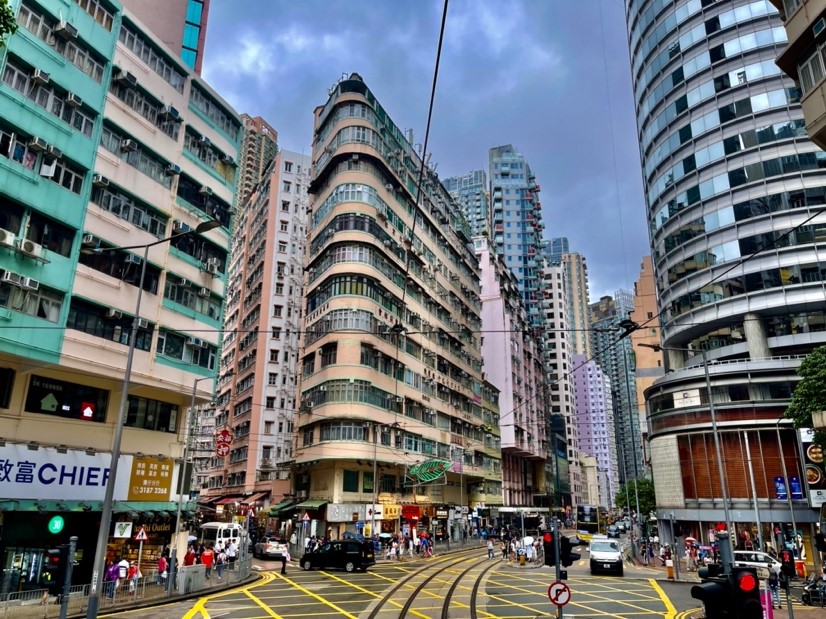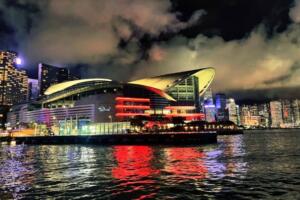Interview with Freek van Eijk for CreativeNL
October 05, 2023
In an interview with CreativeNL, Freek van Eijk, the director of Holland Circular Hotspot, provided a comprehensive overview of his insights and experiences at the ReThink event in Hong Kong held on September 14 and 15.
He discussed his interactions with key individuals and highlights what particularly resonated with him during this gathering, which he attended at the invitation of CreativeNL and the Consulate General in Hong Kong and Macao.
Read more at www.creativenl.nl/articles/freek-van-eijk-hch-rethink

Hong Kong and the world need systemic change!
Freek van Eijk, Holland Circular Hotspot
What is the status of Hong Kong in terms of developments in the field of circularity and sustainability?
“Hong Kong, with its 7.4 million inhabitants, is one of the most densely populated areas in the world. This city is truly unique, vibrant as a financial, shopping and logistics center.
Awareness of circularity is still in its infancy here. Hong Kong faces the challenge of meeting ambitious climate goals, becoming more resilient and addressing its waste management challenges. The Dutch will hopefully bring inspiration to Hong Kong and offer opportunities for further cooperation. Hong Kong has always acted as a hub for imports and exports, with almost everything – from water to power and food – imported from outside. Closer cooperation with the Greater Bay Area seems logical. There now seems to be a tendency to simply rebrand waste as a raw material and waste management as a circular economy, without actually implementing a holistic systems approach.
Household waste is more than 20% plastic
While Hong Kong excels in some areas such as public transport and shared spaces, it lags behind in others such as resource consumption and waste. The gap between rich and poor is also considerable here. In addition to the climate ambitions, regulations for waste management are being tightened, especially for the use of single-use plastics. No less than 21% of household waste consists of plastic. This forces the development of alternatives to disposable cups, cutlery, food containers, straws, and so on. Design thinking, or circular design, must accelerate and provide space for new materials, recycling options and reusable solutions, all in combination with smart logistics.
Imposing skyscrapers but not circular
Although Hong Kong is known for its impressive skyscrapers, none of these high-rise projects are yet circular. This offers enormous opportunities, not only in the field of climate ambitions, such as heating, cooling, renewable energy and energy savings, but also for innovations such as ‘buildings as a service’ and the use of new circular or biobased materials. This approach requires collaboration between architects, material suppliers, financiers, tenants, developers, facility managers and waste managers.
Most (solid) household waste is organic
Most of Hong Kong’s household waste consists of organic waste. Food waste prevention, but also urban agriculture can be interesting for Hong Kong. This can create more resilience for a city that imports everything. It can reconnect residents with food and create a local food culture.”

When you compare Hong Kong with the Netherlands, what do you notice?
“I believe that Hong Kong can benefit from a strengthening of both top-down and bottom-up initiatives. In terms of population, Hong Kong is slightly smaller than the Randstad in the Netherlands, but much more densely populated. Like the Netherlands, it is a vibrant international hub, but it is completely dependent on imports. Both countries need to prepare and be resilient for the future, and the recent floods in Hong Kong have made that clear to us.
Large-scale systemic change is needed in Hong Kong. Although the city has a long history of a market economy, we cannot leave the challenges of the future to the market alone. That would only bring gradual changes, because the industry is generally conservative and reluctant to make major changes. Yet such a drastic system change is precisely what both the world and Hong Kong need. In the Netherlands we have a government that has set ambitious goals and established preconditions. Industry leaders and start-ups are showing that the transition to circular business models is possible, and there is also an active bottom-up movement underway.
Imagine if Hong Kong and Singapore were to compete for the leadership role in sustainability in the region. That would be nice. During our meeting with the think tank Civic Exchange, it became clear that Hong Kong has the assets to be an important economic hub and to lead the way in making logistics, such as marine fuels and aviation fuels, more sustainable. Furthermore, Hong Kong can leverage the potential of its financial services sector to promote sustainable investments.
Hong Kong can benefit even more from its seemingly inexhaustible source of human talent. In this context, I warmly welcome the initiative of the Dutch Consulate and CreativeNL to be a Partner Country during this year’s Business of Design Week 2023. Waste management relates to the past, but that does not mean that we cannot make efforts today keep resources in circulation. Design is focused on the future and circular design aims to eliminate the concept of waste!
As a city, it is essential to look at your ecosystem and metabolism. How can you manage what comes in and out of the city? The Greater Bay Area perspective is a meaningful approach to looking at Hong Kong. As an illustrative example, as highlighted by NGO Green Earth, the main polluter of single-use plastics (SUP) on Hong Kong beaches comes from a company that until recently did not sell its products in Hong Kong!”

Therefore, understanding the differences in values and approaches inherent in the Hong Kong people is essential for successful development and long-term success.
Freek van Eijk, Holland Circular Hotspot
Why did you even get on the plane? Such a long flight sounds polluting…
“During the pandemic, physical meetings with Hong Kong and the world’s second largest economy, China, were not possible. As HCH, we organized several digital events focused on China and Hong Kong, together with the Dutch representative offices and RVO. These were an excellent first introductions to the market, but there are limits to what you can achieve online. Ultimately, if you want to do business, you have to build a relationship. It’s about people and building trust. Moreover, circularity depends on the local dimension in which it is being developed. Therefore, understanding the differences in values and approaches inherent in the Hong Kong people is essential for successful development and long-term success.
Once you’ve decided to travel, you need to do it as efficiently as possible. During the visit, HCH worked closely with the Dutch Consulate General in Hong Kong and Macau , the Dutch Chamber of Commerce and the Business Environment Council ( BEC).”
What was your contribution to ReThink?
“We actively participated in the ReThink conference which attracted more than 6,000 attendees and provided a great opportunity to collaborate with diverse groups including government officials, companies and representatives of Hong Kong’s younger generation.
We attended the opening ceremony of the EU pavilion, followed by the opening of the Dutch stand organized by the Dutch Chamber of Commerce, DCC (Dutch Chamber of Commerce). I took part in a panel discussion entitled ‘Circular Transition: Rethinking Waste as a Resource’.
The Consulate and HCH collaborated with Merlin Lao and his team from the Business Environment Council of Hong Kong (BEC) for a highly rated workshop on reducing the use of single-use plastics. Hong Kong is taking steps to eliminate certain types of single-use plastics (SUP). BEC and HCH organized an interactive workshop with a SUP quiz, an introduction to the upcoming regulations by SWIRE Coca-Cola, and an introduction by HCH to CIRCO’s design methodology for SUP. The aim is for CIRCO to work with a local partner to introduce their design methodology to entrepreneurs in Hong Kong (CIRCO’s ‘train-the-trainer programme’ with a local hub). Ultimately, participants had to work on alternatives to single-use plastic cups, cutlery, food containers and straws.
To conclude the Rethink event, HCH took part in a lively plenary debate organized by the EU, where three representatives of the younger generation could question today’s circular leaders. The theme was: “Sustainable Supply Chains: Are We Doing Enough on Climate Change?” and focused on the circular economy, (corporate and personal) leadership, and the role of Hong Kong.
Our activities also included a lunch session with Diana Wong, Undersecretary for Environment and Ecology at the Bureau of Environment and Ecology of the Dutch Consulate, in the presence of key Dutch companies in Hong Kong (Action, Arcadis, Boskalis, FrieslandCampina, ING, Philips and the Dutch Chamber of Commerce). There was a dynamic and constructive exchange between public and private actors, with Dutch companies presenting their best circular and sustainable practices.
Other visits include knowledge exchange with Prof. Benjamin Steuer , Associate Professor at Hong Kong University of Science , Department of Environment and Sustainability. We also had a brainstorming session with Lawrence Iu , executive director of the think tank Civic Exchange , and Edwin Lau , founder of the NGO Green Earth , who is knowledgeable about all things plastics and litter. The consulate team joined them during one of their beach clean-up days last weekend.
Together with the Dutch Chamber of Commerce in Hong Kong, we organized a lively masterclass on the circular economy.
Shenzhen: Sino – Dutch Circular Fashion Days
In addition, we made a trip to Shenzhen, where, at the request of Aniel Kerkvliet (Chief Representative Netherlands Business Support Office Shenzhen ), we participated in the Sino-Dutch Circular Fashion Conference event , which took place on September 16, together with the opening of Shenzhen Fashion Week.
During the event, Leontine Wagenaar , senior Fashion Strategist & Creative Consultant at Modint, and Stijntje Jaspers provided a comprehensive overview of the Dutch approach, developments in the Dutch ecosystem and an overview of Dutch innovations. HCH moderated the panel “How can we accelerate the transition together?” with Stijntje Jaspers (Fibershed NL), Luo Ying (Shenzhen University), CHEN Shilei (BloomGEM), Eduardo Garza (Waste2Wear), Joris Guisado (BSK Fashion) and Zhang Yang (Impact Hub Shenzhen).

Composition Femke van Woerden, October 3, 2023



